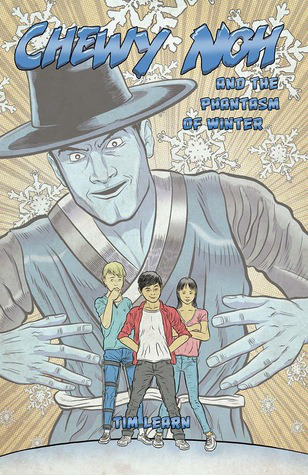Tim Learn's Blog, page 17
January 4, 2016
Tentative Cover for Chewy 4
So far this is what’s being made for the Chewy Noh and the Legends of Spring cover. It’s Chewy being carried away by Chewy clones.



December 27, 2015
Kindle Scout!
Chewy Noh and the March of Death (Chewy Noh #3) has roughly one more week left in Kindle Scout. If you don’t have the time to swing over to the site, here’s a peak at what’s inside.
7
Unexpected Side Effects
Walking into the room, Clint and Chewy found Kent staring around as if in a foreign land.
“Why the hell do you have levers next to all your doors?” he asked, rubbing the shoulder his sling hung on.
Clint slipped over next to the closet to keep Kent at a maximum distance, and then he watched Chewy go over and drape himself on the bed. Clint couldn’t believe he was being so relaxed about this.
“It’s an old house,” Chewy said, nonchalantly. “The doors jam sometimes.”
Clint marveled at Chewy’s bravado. He came up with the lie so naturally. Inside, Clint wished they could say otherwise. He had built them after all to open the doors from the other side so that they didn’t get trapped in the room by the door bridges. But he could do little bragging about it without having to explain way too much more.
“Only you?” Chewy lazily drawled out from the bed.
“What do you mean?” Kent said, dropping his large eyebrows.
“Tom’s fine—no injuries?”
“Of course not! Why do you think I’m here?” Kent said, holding his one good arm out. “That lummox has no idea.”
With that, Clint forgot his anger, realizing something was going on here.
“You said this started about a week ago?” Clint glanced at Chewy who had lifted an eyebrow of interest.
“The major injuries…yes,” Kent replied.
Clint squinted. It was all beginning to make sense. “Yes? So you had problems even earlier?”
Kent shoved out his lips. He didn’t seem to trust either of them.
“Maybe,” he opened with before deciding it’d be okay. “Like three weeks ago.”
The test—that was it! It all started when Chewy had lost his power—well, not really lost it. Clint had to wish it away to save his best friend from expulsion for cheating, but he had a feeling it was somehow connected.
Clint began nodding causing Chewy to sit up in bed.
“What is it?” he asked.
“Don’t you see? That was when everything started going downhill for you too,” Clint said. “I think I understand what’s going on now.”
He smiled only to find the two other individuals in the room staring at him with questioning glares. He put up his hands to signal that he’d explain and moved into the middle of the room, feeling slightly braver.
“Kent wished to be better than you at everything. By doing that, his abilities became linked to yours. If you were the best, he was just a little better. But if you somehow ended up becoming the worst…” he trailed off, letting them connect the dots.
“Are you saying,” Kent growled, pointing a strict finger at Chewy, “that because he now sucks, I suck too.”
Chewy began giggling on his bed, drawing both of their attentions before he was able to squeak out his words.
“Close,” he said, wiping away some tears. “But not exactly. I suck so you suck just a little bit less than me.”
Chewy broke into a fit of giggles again, causing Kent to snap.
“Then what are you laughing at?”
Chewy swallowed hard to control himself. “Because it all makes sense now. Last week, right around when all your accidents started, I was informed that by this Wednesday I would be dead. And what’s only slightly worse than that?”
Clint’s face went flat with disbelief, but Chewy was right. What was one step better than dying—getting every bone broken? Being a walking calamity of accidents? If that were true, it seemed to say there was little either Clint or Chewy could do to stop the event on Wednesday from happening. And his anger began to rise thinking of Chewy’s overwhelming confidence.
Before he could finish this thought, a thump rang out behind him.
Clint spun around, seeing a large man dressed in a billowing, black robe as if wearing a cape, and a broad black hat. After the ghost had attacked them earlier that winter, Chewy showed Clint many pictures of Korean spirits and ancient gods. This man looked eerily familiar like an old time solider complete to the last detail, including the shiny sword glinting in his right hand.
In a second, Clint’s brain turned off, and he lunged for the door, slamming it shut. He heard his own voice yell out, “Chewy!” And then, he swung the door back open, revealing a long black corridor and dove in.
He hit the ground hard, staring down into a sea of black. For this reason, door bridges always freaked him out. It was like walking across an endless pit without falling. But he pushed all of this away, flipping over just in time to catch Chewy jumping on top of him.
Both screamed from the collision but quickly realized neither was injured. It was more so out of fear than pain. They scrambled to their knees and stared out the open door bridge at Kent who had turned white seeing both of them disappear right in front of a large Korean man.
The man stepped into the room, and Kent began throwing things aside—the desk chair, blankets and pillows—to get as far away as possible. His injuries, however, made it difficult, and he fell to the ground, slamming his already broken arm on the floor. The crack of the cast breaking made both Clint and Chewy cringe as they watched on.
Clint tried saying something but his voice didn’t seem to work. Luckily, Chewy’s did.
“Don’t worry. He should be okay. Remember it’s me they want.”
Clint nodded, but this didn’t seem to stop his heart from thrashing around inside. Then the man in the room shifted his head to the side, almost as if looking backward to where they were hidden. Clint knew the door bridge kept them out of sight, but it seemed like this specter wanted them to see something.
The man’s eyes narrowed, and then he lifted the sword above Kent who was frozen in fear. Clint wished Kent would’ve made some kind of sound—anything—then maybe the man would leave.
At that moment, the soldier twisted his arm and drove the blade of his sword right through Kent’s chest. Kent’s head uplifted for a second as if to meet the thrust, and his eyes bulged either in pain or disbelief before collapsing to the floor. A moan escaped his body as it stopped moving.
Retracting his blade, the solider held the sword up as if to admire it, holding it in clear sight for both of them to see. It had no blood, but Kent’s body still wasn’t moving. And the soldier turned toward them and walked out the door, leaving the room empty.
For the first few seconds, neither spoke, but just stared at Kent’s lifeless body before Clint was able to muster enough of his voice back.
“How?”
Next to him, Chewy swallowed hard, his eyes focused on the body in front of them.
“I don’t know,” he said shaking his head. “I don’t know.”
December 23, 2015
To Beat a Grammarian: Weak Verbs
To Beat a Grammarian: Weak Verbs

Weak verbs are probably the worst flaw to correct. For that reason, the best time to tackle them is in editing. While you’re in the midst of writing, the last thing you want to do is slow down your momentum to come up with another word for ‘move,’ and yet that’s exactly what some do. But let me explain first.
This transgression is usually focused on dull, colorless verbs or verbs that find themselves stalked by adverbs. Check out below.
Billy ran quickly after Tessa, hoping he’d catch her before she got on the bus.
Or
Tessa moved across the room to see what the commotion was outside her front window.
In the first example, we see the use of an adverb, ‘quickly,’ paired with an inadequate verb, ‘run.’ Anytime you find an adverb in your manuscript, you must analyze it heavily to see if it is truly needed. This can be hard. Sometimes, the usage is colloquial habit. In that case, cut it. Sometimes, it’s style. Then make sure to keep it measured. In the above case, it would probably be best to dump both ‘ran’ and ‘quickly’ and replace it with a stronger verb, like dashed, darted, or even sprang.
In the second, we see the usage of such a hoo-hum word, ‘move,’ that the character’s movements seem to be unimportant. Move—yuck! Traipsed—better! Paint a picture for us. Wow us. Don’t phone in the details of your story’s events and give us colorless action. This is when editing comes in handy. So do your best.
Now, in no way does this mean you should go crazy and throw in words that seem out of place, saying, “Tessa galloped across the floor.” Nor do you need to go medieval or Shakespearean on the verb, saying, ‘Tessa brought forth great strides to cross the room.” Some writers try to avoid a ‘plain’ verb so hard, that sometimes it ruins everything. In other words, keep it simple, but don’t bore us.

Other words to watch: look, eat, see, hear, smell, feel, cry, laugh, run, walk….and so on.
The only place this rule doesn’t count: said. When it comes to speech tags, overusing said is never a bad thing. You can occasionally say ‘yelled,’ or ‘snapped.’ But ultimately, ‘said’ should be the majority.
December 22, 2015
Bumbling Bea
Bumbling Bea
(Children’s Lit/ Middle Grade)
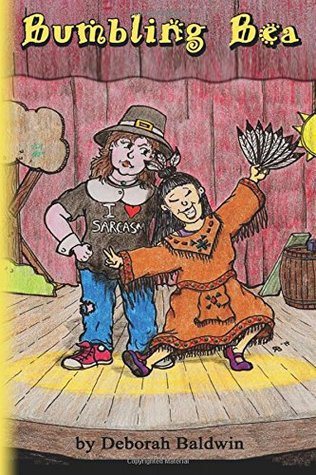
By Deborah Baldwin
Rating

Synopsis
Bea’s life gets turned upside down when a foreign student from Japan, Machiko, takes the prize role in the school play. From there, conflict between the two girls arises until one day Machiko gets stuck in the bathroom.
Prose
The writing in this thin book was enchanting. It had a flavor all of its own and rolled on and on very clearly and well. Take a look.
This was one of those times that happen about once a year in your beige life, you know? When what you’d been thinking about, dreaming about, actually happens and life gets a lot more colorful.
The author does a good job giving the main character, Bea, a unique voice, as the story is presented in first person. She grabs the inner thoughts of a girl well in this way. However, there are some flaws.
Characters
Clearly, Bea is well done. Her full name is Beatrice, but she calls her alter ego, ‘Bumbling Bea.’ It is the side of her that jumps out and sort of ruins things from time to time. If a real child did this, I’m sure some authority figure would snap on them. She tends to use her alter ego as an excuse often, but we do see real consequences when she’s too dramatic.
The other characters, besides Machiko, are sort of flat, given their favorite activity and/or personality tick. This doesn’t bother me too much, even though it was hard to keep the side characters straight. Clearly the people who matter were better drawn.
Machiko is our glimpse into another culture and offers a slightly different perspective. She is still a little too clean cut, especially compared to Bea who feels very well-rounded, but at least she wasn’t a stereotype…too much.
Structure
Like always, this is where things fall apart. The beginning was actually quite delightful. We get a little anecdote to demonstrate the destructive and/or bumbling nature of Bea. From there, I expected it to get into the main plot smoothly, and it did…but there were many bumps.
For one, even though the conflict between the girls came quickly, I couldn’t help but feel parts were missing. I was unclear when Bea found out she wasn’t going to get the lead. Then instead of bringing more tension, anytime things got rough, Machiko just ran off. Fine. I know some girls who are like that—not just middle-schoolers—but as the book progressed, more and more scenes seemed to be snipped or rushed, ultimately leaving me confused.
Then there’s the main plot. Clearly, it is between Bea and Machiko, and as you can expect, eventually they make-up and become friends, but it didn’t feel real to me. By the time the play happens, they are the bestest friends in history—somehow? I didn’t feel it or believe it. In this way, I wished more time was spent on that part.
Also, we get a little repetition, hearing the same things regarding Kabuki and Japanese culture a couple of times. It felt like the author was really trying to teach us about it by say it again and again.
And with all of this combined, it left me perplexed.
Overall
As you can see it was hard to come to a firm score for this book. Ultimately, I decided on three and a half. This was mainly due to the rushed fragments of the story. However, many parts were well written. Perhaps, the smaller nature of the book—only 155 pages—is to blame. Had the author spent a little more time filling it out, allowing the friendship and the problems to resolve themselves more naturally, then she might have had a much better book on her hands. As is, it’s good—just not wow.
P.S. The cover really needs a makeover. Right now it looks very amateurish.

Check out the book, here.
Check out the author’s site, here.


December 21, 2015
Another Awesome Chewy Noh 2 review!
December 20, 2015
Top Three Things Planned for 2016
Top Three Things Planned for 2016
In a way, it’s like a over-done New Years Resolution. However, making a list does seem to put the extra, added pressure sometimes to get things done. So here goes.
1) Finish my first series
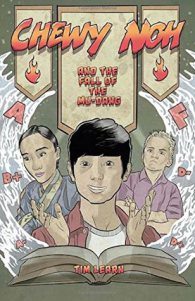
My first goal is to complete the Chewy Noh series I started over a year ago. Currently, I’m editing book four and writing book five. When I started, I had intended on only writing one. It began as a project with one of my students who also wanted to practice writing stories. I had never written anything for a younger age group, so I tried one for my students while he went along with his thriller story.
As of yet, he is about half way through his, and I think he’s learned a lot. As for me, I’ve seen my writing change immensely. Not only that, but I’ve pick up a lot of info regarding publishing, self-publishing, and the way the marketing of books works. I can’t say I’ve enjoyed all of it. In fact, I find much of it disagreeable and poorly run, but that’s the system we’ve got.
Once Chewy is done I don’t know if I’ll write Middle Grade again.
2) My Reading Project
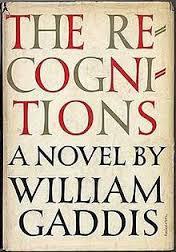
I originally started this blog roughly a year ago in order to have a site for people to locate my writing, especially Chewy Noh. However, over the years, I’ve seen people use their sights for many other things as well. One use in particular caught my eye.
Every spring, I try to push myself into a book that looks daunting or difficult. The whole aim is to finish one of these books before the end of my teaching semester. Three years ago, I tackled Infinite Jest. It was fun and fulfilling, though trying with its abrupt ending and convoluted writing style. From there, the next year, I chose James Joyce’s Finnegan’s Wake. I just barely got through it in time, as some parts were slow and mind-numbingly hard. Truthfully, I fell asleep at times. Some time in the future I will try it again. They say you have to read Finnegan’s Wake twice. The first time through is a mistake, and I’d have to agree.
However, this year I fully plan on reading the famous not famous book, Recognitions by William Gaddis. I’ve only heard amazing things about it, and peeking in, it appears not to be so troublesome in style, but more so in length. Or at least, I hope.
3) Begin my two new writing projects

Stemming from my work on Chewy Noh, I have two books I’d like to start and hopefully complete in the upcoming year.
First, I want to compile a lot of my posts on grammar and rework them into a comprehensive but fast, little book on the nuts and bolts of editing. Though Strunk and White is awesome for foundation, I’ve had many detailed questions that it didn’t seemed to address. In this way, I hope to provide an aid for others who may be searching for a book to help avoid the dreaded bad reviews that focus on weak grammar.
Second, having done a younger age group, I would like to shift to something older. I know older markets are much more saturated, but I want to be able to tackle more abstruse topics and make worlds where lines aren’t so clearly drawn. I know one major complaint about my younger works is the inappropriate themes. Parents tend to like their children reading something with a distinct and clear moral. For some reason, they frown at children being presented with any form of ambiguity. Whatever.

With only three on my list, I think this year’s goals will hopefully be easy to achieve. How about you?


December 17, 2015
An Excerpt from Chewy Noh: Gangnim
An Excerpt from Chewy Noh: Gangnim
Currently, the latest volume of Chewy Noh is on Kindle Scout. To promote it, I’ve appended the third chapter for review. If any of you enjoy it, please go to the link below and check out more. Any votes would be greatly appreciated. Thanks!
https://kindlescout.amazon.com/p/4LD3KBBHDPYD

3
Chewy lifted his head to the dark room. He could have sworn he heard something and instinctively glanced at the spare bed opposite his. Ever since building a door bridge between their two rooms, Chewy routinely found his best friend, Clint, sleeping there. A run-in with a ghost could do that, and knowing this house was spiritually protected also helped. After tonight though, this would no longer be the case.
The bed was empty and Chewy turned back to his pillow happy. He wasn’t in the mood to see Clint anyways—not after what he did. And it was then that he spotted the silhouette of a person in his withdrawn desk chair.
Believing he knew who it was, he ventured a “Grandma?”
The figure shuffled, coughing, and Chewy caught the distinct clack of leather against metal. In that moment, the clear image of an old-style Korean soldier in full regalia stood out before him, and looking up, he saw a pair of eyes glow in the moonlight.
“Good evening, Mr. Noh,” a deep voice said.
This was definitely not his grandmother. Chewy kicked at the sheets, pushing himself up against the head of the bed. He calculated whether or not he could make it to the bedroom door. If through it, he would be in the protection of the door bridge, but that meant getting past this shadow first. Through all of this, the man didn’t move or speak until he saw Chewy was settled.
“Please,” he started, holding up a thickly gloved hand, “I’m here merely for diplomatic purposes. For this reason, I’m allowed to pass through your mother’s protections. I cannot hurt you.”
Chewy lowered his arms, sitting more at ease. There was something about his deep voice, something genuine that resonated with Chewy. He felt he could trust this man.
“Who are you then?”
The man shifted again. Chewy easily imagined the full solider costume weighed immensely. There was no way it could be comfortable.
“Ah, yes, it’s dark here,” he said, turning his head around the room. “You’ll have to forgive me. We run on Korean time and it’s supposed to be day out.”
He reached forward, finding the switch to the lamp on the desk. The light flicked on, and Chewy looked up to a well-trimmed goatee below powerful, piercing eyes. It took Chewy a second, but eventually, he knew who he was staring at.
“Gangnim.”
The man appeared shocked for a second at Chewy’s reaction before bowing his head.
Chewy recollected stories from his grandfather about this man, how the god of death, Yeomra, tricked him into becoming his messenger. Something inside Chewy went out to him, despite knowing this man was dangerous.
“So you’re here to kill me,” Chewy continued calmly.
A small, toothless grin appeared within the goatee.
“Not exactly,” the man started, shifting his legs. “I’m here because of that.”
He pointed to the scar below Chewy’s nose. Chewy instinctively covered it. It no longer hurt, but he felt the tightness whenever he smiled, and he didn’t like being reminded of what it stood for.
“Your grandmother worked hard to hide you from me, but eventually I found you. I must tell you then, that in a short time, I will return for you.”
Chewy lifted an eyebrow. “So you came tonight to tell me that you’re going to kill me?”
Gangnim lowered his eyes for a second in thought. “I’ve been doing this job for over a million years. The rules have changed a lot, mind you. In the beginning, I only had to address the mayor of a town before I took someone. You must understand, this was back when the world had much less people. Nowadays, there’s just no time to follow these formalities. Most of the time, we don’t even hand out warnings anymore. You’re a special case, though.”
Chewy’s head twitched in recognition. A ghost had said the same thing to him recently and its meaning worried him. Hearing it again could be nothing good, and he kept his senses sharp.
“How so?” Chewy asked.
Gangnim set a gloved hand on the desktop before answering.
“Like I said, the population has increased. With it, I was given the task of handling the special cases. Normal footmen carry out the everyday duties,” he said, lowering his head. “My job is to find the ones hiding from death—the ones purposely avoiding his decree.”
“You mean I’m not the only one?”
Gangnim laughed, and the light from the desk painted deep shadows around his eyes.
“Lord, no,” he said, putting his hand up to control his own laughter. “My hardest case was chasing a man named Samani. Like all areas of Korean life, corruption was rife, and this man was able to escape death the first time by bribing one of my elite officers. Afterwards, he eluded us for forty thousand years. He was a wily one, much like you.”
Chewy took it as a compliment, his eyes disappearing in a grin, and said, “Then how did you catch him?”
“My master is Yeomra, a god famous for his tricks, which means I, too, have picked up some of his habits over the ages. I went to a river and began washing a piece of charcoal. When people asked, I told them I had heard if you washed it for a hundred years, it would eventually become white. Not too long after, a man laughed at me, saying, ‘I’ve been alive long enough to know the rock you hold will never turn white.’ And with that I found my man.”
“It was you then, wasn’t it?” Chewy said, studying the man closely.
Gangnim tilted his head. “Me?”
“In order to catch me, you sent that ghost to give me this scar. He said as much, mentioning I was special, just like you did now.”
To this, Gangnim lowered his eyebrows. Clearly, this was news to him as well.
“I’m sorry,” he said, looking deeply into Chewy’s eyes. “But that I don’t know.”
“Then what happens next?”
Gangnim’s lips went flat, and a grim look came to his penetrating eyes.
“I advise you to get your things in order. Say your good-byes,” he said, his eyes dropping upon Chewy’s face. “In one week’s time, Mr. Noh, you will be dead.”


December 16, 2015
The Fine Line of Repetition
The Fine Line of Repetition

This is maybe one thing in writing that too often goes unnoticed, but many writers nowadays seem to overlook the strengths and usually weaknesses of repetition. Is it all bad—no! Is it good—resoundingly no! So let me explain.
Most people tackle editing with the sole desire to route out those pesky grammar problems and other subtle inaccuracies in their stories. The sad thing is they often overlook the most glaring offense of all. Repetition is probably the most jarring aspect of bad writing for me. I ruthless scour my manuscripts for unintentional verbal echoes, and I berate my students for not doing the same. At least for them, there’s an excuse. The Korean language doesn’t mind so much repeated words and phrases. The language has many redundancies in sound and stucture, so it is expected. But when native English speakers blantantly sidestep it, I find it irreprehensible.
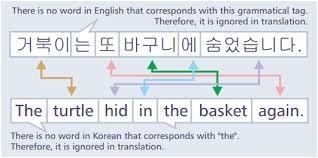
Now, I know what you’re saying, the English language, too, has many words that repeat. In fact, the most commonly used word in English is the word, ‘the.’ My last sentence had it twice (if you don’t count the word itself.) But I’m not talking about that.
Even when it comes to basic story functions, the word ‘said’ is preferred above others to keep it plain and straightforward. Again, fine! It’s okay. What I’m talking about it the consistant use of certain specific words in an arbitrary manner.
Arbitrary? Well, sometimes to create atmosphere or enforce theme, an author will use certain words in repetition to highlight elements that are important. Perfectly fine. But arbitrary usage is wrong, and easy to spot.
While reading, if I notice the use of a word, let’s say ‘bulgy’, over and over again, I begin to question the author’s reasoning for using it. This is what any trained reader does. They question the text. For example:
His backpack was bulgy. (p.11)
His friend waved happily, a big smile on his bulgy cheeks. (p.12)
Walking away, Frank could see the bulge of something in the man’s pocket. (p.12)
Here ‘bulgy’ or a variant is used in too close a proximity. For this reason, I would question it. Is the theme of the story ‘bulgy?’ Does the author think ‘bulgy’ is something I should pay attention to? In the end, no! It’s just the first word that popped into his head as he wrote. Nothing else.

Then should we avoid repetition altogether? No, like I said, it does show emphasis, like the famous line:
A rose is a rose is rose.
It tells us something is important here. You just don’t want to shove importance upon us, the readers, unless it is important.
And I know—it can be hard. But that’ s what editing is there for. In the end, don’t just look at the grammar.
December 15, 2015
What I Learned From Rainbow Rowell’s Eleanor and Park
What I Learned From Rainbow Rowell’s Eleanor and Park
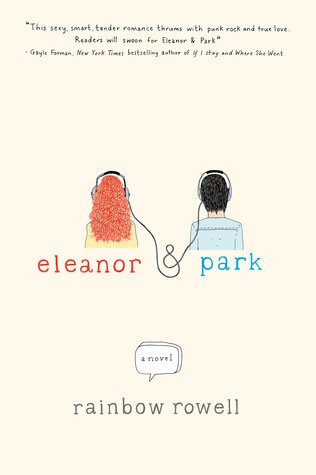
I mainly review self-published works because I encounter so many blogs that specifically and intentionally go out of their way to say suck it to self-published authors. That’s fine. That’s what they want to do. However, despite my reviewing habits, I tend to read mass published books as well. One of which was Eleanor and Park.
One thing that caught me right away from this book was that it was YA, and that by itself was not bothersome, but rather, that it wasn’t your normal YA. Let me explain.
Having written four books that are considered Middle Grade—despite Middle Grade encapsulating a vast and varied field of kids—I know well the tropes and guidelines of YA. In fact, that is usually how most people differentiate the two.
MIDDLE GRADE
Middle Grade consists of protagonists the same age as its readers (between 8-12), is presented in third person, and is, for the most part, clean—meaning no bad language or sex. If there is love in the stories, they should be the platonic type: holding hands, furtive glances, etc.
YOUNG ADULT
Young Adult is a whole other ballpark. Although the protagonists must be in there teens or even tweens (part of the middle grade realm), the readers can be any age, all the way up to adult and older (senior citizens?) It is almost always done in first person—quite possibly to get that snarky teenage voice—and MUST have elements of sex, which doesn’t mean it has to be explicit, though it can be.
So by now, I hope you see where this doesn’t match up. Not only is there a natural tendency against Middle Grade—because the readers should be the same age as the protagonists—but also with Rainbow Rowell’s book, she breaks many of the YA standards.
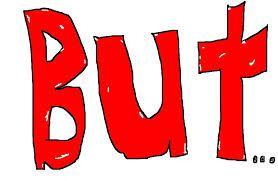
First of all, it is one hundred percent in deep third person—and done amazingly well. You still feel totally immersed in the character’s thoughts and lives, and it pulls you along quickly. I loved it.
Second, though about first teenage love, the sexual element is almost non-existent. True, there are times that cold water should be dumped on either of the main characters, but we never get anything unquestionable.
And there’s the rub: YA stories can do whatever they want, while Middle Grade is shunned because it’s somehow not age worthy or too immature. And that’s not to belittle Rainbow Rowell’s book. I thought every note was pitch perfect. It’s just that, in the end, it pointed out the distinct bias and difference between two genres: the popular group and…the dismissed.
December 14, 2015
Top Three thing I’ve learned about writing in 2015
The Top Three things I’ve learned about writing in 2015
I’ve written three 60,000 word books this year. From them all, this is what I’ve learned.
1) Planning

While writing the first Chewy Noh last year, I realized that flying by the seat of my pants with just one scene holding everything together is not the best way for me to write. That’s not to say the opposite is true, either. Having written a highly script and organized book before, I can say that both extremes aren’t useful—at least, for me.
When it came to the second book, I had an outline with two distinct plotlines I wanted to address and have overlap. I could see it in my head, if not on paper. Then I took to writing, and overall, it worked well. Readers seemed to agree, too.
Then I hit Chewy’s third book, and…it stalled. I had my outline. I knew many of the scenes, but nothing worked. I couldn’t figure it out until I jumped into the story. I got to know all the characters again—I mean really well. I got into their heads and their feelings. I felt what they felt. Both sides were supported.
Which leads me to number two…
2) Never give up
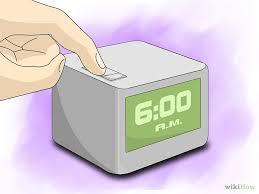
Having found my way through Chewy’s second book so easily, I thought I had my method of writing. But with book three, nothing turned out the same. It took longer and was more stress. Every so often, I felt I had lost it. And that’s when I realized, no book is ever the same.
With book three, I expanded Chewy’s world and was trying something new. Of course, it was going to be difficult. In the end, the most important thing was not giving up. Every morning, I woke early, wrote for an hour or two, and then re-read and edited it at night using the Send to Kindle program. Reading on an i-pad screen made it feel more like a real book. And…I got through it. Many of my beta readers have said it’s the best one yet—well paced with fast action. But in the beginning, it wasn’t that way.
And now that I’m working on the fifth and final book of the series, I’m hitting a wall again. When it comes to writing, it just seems to be that way, but the finished product never shows it. I’ve heard from many authors before that looking at their book once it’s done surprises them. They can’t believe they did that.
And finally…
3) It’s better to cut than to save
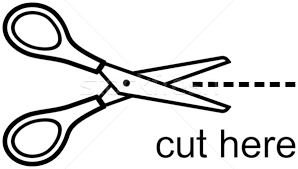
This one I feel is something every writer, artist, creator deals with for the rest of their lives. It’s a constant struggle between what you wanted to create and what works well.
I tell many of my students to re-read and edit their writing before giving it to me. None of them listen, and they hand in crap with blatant errors all over. Eventually, my constant nagging gets through and one or two of them listen, giving their essays a quick once over, and they’re always amazed at how many grammar, spelling and other such mistakes slip by.
When it comes to writing a story, none of this should be of concern. Far too many self-published books I’ve read this year were actually well edited and had few errors. What they did have were poorly constructed plot lines and weak dialogue. Why?
It seemed most often the author chose not to cut the crap out because of a sense of “Oh! but I like that part,” or “my readers said they wanted more of that.” The worst offense of all was one author keeping three pages of uselessness because they wanted a higher word count.
Seeing all of this made my scissors sharp. I yanked, pulled, and destroyed any and every part of my writing that seemed to drag or feel useless. I still feel that for writers—or artists of any kind—we have an eternal barometer, showing us the weak points in our creations. And I know, like others, many times I ignore it, letting small atrocities get through into my writing. But seeing this fault in so many has slowly brought me around to change that in myself.
Overall, it was a good year. But if this is what I’ve encountered thus far, I can already tell that next year will be equally as daunting and….yet somehow I know, inside, it will still be worth it.







